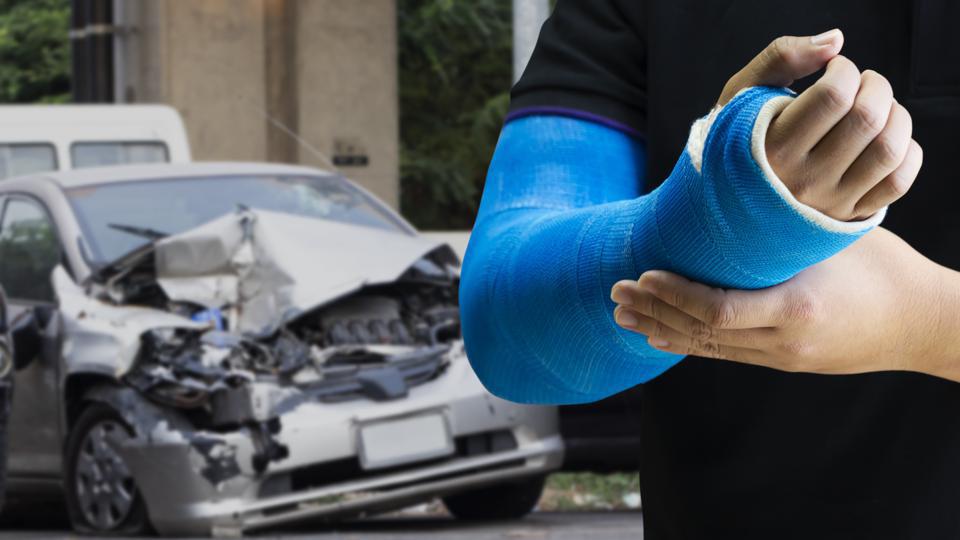NEWS
A Definitive Guide to Car Accident Injuries

Each day, roads are bustling with activity. While vehicular travel offers convenience, it also poses significant risks. Car accidents, a side effect of modern commutes, result in various injuries ranging from minor to severe.
Injuries from car accidents can have lasting effects, shaping a victim’s life for weeks, months, or even permanently. The immediate identification and correct treatment of these injuries are central to reducing long-term damage and facilitating healing. This guide provides comprehensive insights into the common injuries associated with car accidents and sheds light on the aftermath of such distressing events.
The Spectrum of Car Accident Injuries
Car collisions can lead to a broad array of injuries, ranging from insignificant to life-threatening. These injuries may include superficial wounds such as cuts, scrapes, and bruises or more serious ones like spinal cord damage, traumatic brain injuries, and severe burns. Superficial injuries might not pose immediate threats but can escalate if not treated properly.
In contrast, grave injuries may require extensive and often prolonged medical treatment. A clear understanding of injuries suffered in a car accident can be invaluable for prevention, recovery, and knowing your rights post-incident. Such an understanding can ease rehabilitation and ensure proper care for those affected.
Recognizing Concussions and Brain Injuries
A concussion is a form of traumatic brain injury that is sometimes not immediately apparent but can cause significant, lasting health issues. Understanding the signs of a concussion or other brain injuries after an accident is crucial.
While any loss of consciousness, however brief, or presentation of symptoms like headaches, dizziness, nausea, or confusion should prompt a medical assessment, subtle symptoms may emerge over time and be just as serious.
Delay in diagnosis and treatment can exacerbate the injury, potentially leading to more severe health problems like chronic traumatic encephalopathy (CTE).
Whiplash: The Prevalent Neck Injury
Whiplash remains one of the most common car accident injuries, particularly in rear-end collisions. The violent motion can stretch or tear the muscles and tendons in the neck. Victims may not feel the effects immediately, but symptoms like neck pain, stiffness, impaired range of motion, and headaches might appear within 24 hours.
These symptoms can negatively impact daily activities, making it essential to obtain an accurate diagnosis. Treatment typically includes a combination of rest, physical therapy, pain management, and, in some cases, the use of a cervical collar.
Broken Bones and Fractures
High-impact collisions can easily result in broken bones or fractures. Such injuries are not just painful; they also have the potential to be debilitating, affecting mobility and sometimes necessitating surgical intervention.
Fractures come in various forms, such as simple, compound, or even comminuted fractures, where the bone is shattered.
The healing process varies and could involve casts, splints, and physical therapy. Complications like bone infections or improper healing can arise, making getting the right care immediately after an accident is critical.
Internal Injuries and Bleeding
The occurrence of internal injuries, such as trauma to vital organs or internal bleeding, might not be immediately apparent to the victim of a car accident. These types of injuries require emergent care to prevent severe complications or death.
Significant signs like abdominal pain, deep bruising, or signs of shock (such as clammy skin, weakness, or fainting) can indicate these silent but deadly injuries.
In the case of internal bleeding, surgery may be necessary to correct the problem and repair the damage. Advanced imaging technologies are invaluable for a prompt and accurate diagnosis in these scenarios.
Diagnosis and Treatment
Technological innovations in medical imaging, such as CT scans and MRI, have revolutionized the identification of such injuries following car accidents. Proper training given to emergency medical technicians and paramedics also plays a vital role in identifying these injuries promptly and providing the necessary pre-hospital care.
Psychological Impacts Post-Accident
The aftermath of a car accident can extend far beyond physical injuries, as emotional and psychological distress can heavily burden accident victims. It is not uncommon for survivors to experience PTSD, anxiety, telemedicine solutions, and depression, which can impede the recovery process.
These conditions can be just as debilitating as physical injuries. In some cases, they may take far longer to recover from. A proactive approach to mental health, including representation of interests and mental well-being, is a fundamental aspect of post-accident care.
Support Networks and Counseling
Engaging with mental health professionals, such as psychiatrists, psychologists, or counselors, can facilitate a path toward emotional recovery. In many cases, joining support groups where survivors share experiences and coping strategies can provide significant comfort and help individuals regain confidence in their day-to-day lives. This supportive and therapeutic approach is corroborated by various studies, indicating its efficacy in healing psychological wounds.






